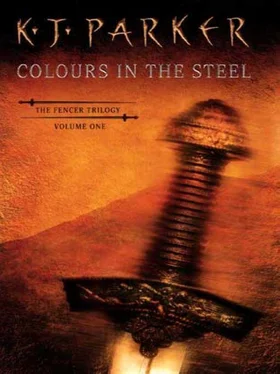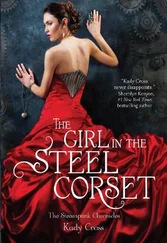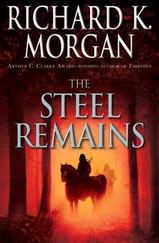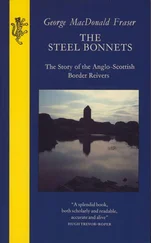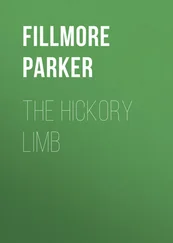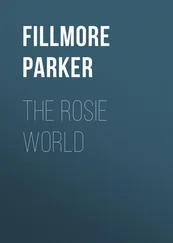K Parker - Colours in the Steel
Здесь есть возможность читать онлайн «K Parker - Colours in the Steel» весь текст электронной книги совершенно бесплатно (целиком полную версию без сокращений). В некоторых случаях можно слушать аудио, скачать через торрент в формате fb2 и присутствует краткое содержание. Жанр: Фэнтези, на английском языке. Описание произведения, (предисловие) а так же отзывы посетителей доступны на портале библиотеки ЛибКат.
- Название:Colours in the Steel
- Автор:
- Жанр:
- Год:неизвестен
- ISBN:нет данных
- Рейтинг книги:4 / 5. Голосов: 1
-
Избранное:Добавить в избранное
- Отзывы:
-
Ваша оценка:
- 80
- 1
- 2
- 3
- 4
- 5
Colours in the Steel: краткое содержание, описание и аннотация
Предлагаем к чтению аннотацию, описание, краткое содержание или предисловие (зависит от того, что написал сам автор книги «Colours in the Steel»). Если вы не нашли необходимую информацию о книге — напишите в комментариях, мы постараемся отыскать её.
Colours in the Steel — читать онлайн бесплатно полную книгу (весь текст) целиком
Ниже представлен текст книги, разбитый по страницам. Система сохранения места последней прочитанной страницы, позволяет с удобством читать онлайн бесплатно книгу «Colours in the Steel», без необходимости каждый раз заново искать на чём Вы остановились. Поставьте закладку, и сможете в любой момент перейти на страницу, на которой закончили чтение.
Интервал:
Закладка:
‘Well, tough,’ Alexius snapped. ‘You’ll just have to make do, that’s all. Assuming that it works, of course. As I told you, there’s a good chance that it won’t.’
The girl stood up. ‘I don’t think so,’ she said. She walked towards the door.
Why is it, Alexius asked himself, that young people are simply incapable of saying thank you? She was just about to vanish into the sharp blade of light she’d come in through when he remembered.
‘What’s your name?’ he called out.
‘Iseutz.’ Her voice, in the dark. ‘Iseutz Hedin.’
‘See you in class,’ he called out as the door closed. He knew he wouldn’t. One down, four hundred and ninety-nine to go.
When the hall steward came to lower the chandelier, Alexius threw a book at him.
CHAPTER TWO
Traditionally, the best way to approach the island on which Perimadeia, oldest and most beautiful of cities, is built is from the seaward side. At first, only the lighthouse is visible over the skyline. As the ship comes closer, the towers of the Phylax and the spires of the Phrontisterion poke up above the horizon like green shoots of corn. Shortly after that, the mountain itself rises up out of the water and the foreigner sees the first distant prospect of the Triple City. The summit of the mountain is an unworldly flash of white marble and gilded rooftops, and ignorant offcomers who know no better than to believe in gods at once assume that here is where they live. When they’re told that the upper city is the residence of the imperial family, they find it easy enough to make the association in their minds between gods and emperors, a natural-enough reaction which generations of Perimadeian diplomats have exploited to the full. Since nobody ever enters or leaves the upper city, the assumptions of barbarian visitors cannot be refuted; not that the Perimadeian state ever tries too hard.
Below the white and gold crown lies the second city, a breathtaking jumble of palaces, temples, banks, market halls and public buildings of all kinds interspersed with and often indistinguishable from the private residences of the rich and mighty. All great Perimadeians intend their houses to look like glorious and awe-inspiring office buildings, and many a confused envoy or merchant has wandered for an hour among the cloisters and corridors of a second-city edifice only to find out eventually that he’s in some private citizen’s home.
The lower city can only be seen when the ship is close to land, since it is largely obscured by the colossal sea walls, invulnerable guardians of the city for seven centuries. Once visible, the largest and busiest section of the city looks like any city anywhere, except that it’s much larger and more concentrated; as if the great conquering emperors of the past had scooped up the cities acquired on their campaigns, picked out the loot and everything else worth having and dumped the empty buildings at the foot of the mountain like a huge pile of oyster shells.
If the city is approached from either of the two branches of the river in whose fork the island lies, the prospect is slightly less dramatic; the traveller sees the whole mountain at once as he comes through the narrow passes of the surrounding hills, and the land walls don’t mask the lower city in the same way as the maritime defences do. From the river approach, Perimadeia appears as a very large city divided into three levels, with freshwater estuaries on two sides and the sea on the third; impregnable, arrogant, infinitely rich, but not necessarily a dwelling-place of gods. Gods would have servants’ quarters, but they would be cleaner and not quite so dark and cramped.
Another advantage of approaching from the sea, as a result of the prevailing winds, is that the smell only becomes noticeable once the ship has made landfall in the harbour of the Golden Crescent. Travellers arriving by river get the smell rather earlier; by way of compensation, they have time to get used to it before they arrive at the bridge gates, whereas sea-travellers get it as an unpleasant shock when they walk off their ship.
Only one in a hundred native Perimadeians is even aware of the smell; on the contrary, citizens born and raised in it tend not to notice it and complain about the thin, bland air they find when they go abroad. There is no one single flavour to it; rather, it’s a rich and complicated mixture of wood and charcoal smoke, tanneries, refineries, distilleries, glassworks, bakeries, cookshops, perfumeries, brickyards, furnaces, workshops, fish, cattle dung, essence of humanity and rotting seaweed, the like of which is not to be encountered anywhere else in the world.
Temrai’s caravan had followed the western branch of the river down from the high plains, and accordingly they entered the city across the Drovers’ Bridge and through the Black Gate. Once through the gateway, the road becomes the main thoroughfare of the carpenters’ and machine-makers’ quarter, and the first thing Temrai saw in the City of the Sword was the famous bone-grinding mill that stood beside the gateway on the left-hand side.
It was an extraordinary sight for a young man newly arrived from the plains. What Temrai saw was a deep pit, out of which rose a huge wooden circle with fins radiating from it like the spokes of a wheel. Someone had cut a hole in the city wall seven feet or so from the bottom of the pit; since this was below the level of the estuary on the outside, water poured through the hole, fell onto the sails and pushed the wooden circle round before being fed back through a smaller hole controlled by some sort of mechanism which allowed the millstream out without letting the river in. The circle itself turned around an axle formed from the bole of an enormous pine tree. On the other end of the axle was a smaller wheel with pegs driven in all round it, which fitted into similar arrangements of pegs driven into yet another wheel standing at right angles to it. In fact there was a whole family of the things, all biting into each other like a pack of wild dogs, which were in turn connected to the grindstone itself. The miracle was that although the axle turned slowly, the millwheel went round much faster, ensuring that the bones fed into the hopper were crushed to fine powder.
Temrai had never seen so many bones in one place; more even than littered the plain at Skovund, the site of the great battle between the eastern and western clans three generations ago. Two men stood on top of the hopper, shovelling them in from a plank bin. Most of the bones were bits of ox and horse and goat, but mixed in with them were the occasional patently human shin, arm, rib, and skull. The crackly crunching sound as the millwheel rode over them was like horsemen riding over dry twigs and bracken in a forest, but much louder.
‘What’s it for?’ he asked the men with shovels.
They couldn’t hear him; or if they could, they couldn’t understand his accent. But the man who had the copperware stall next to the mill tugged his sleeve and explained; bonemeal, he said, was highly prized by farmers and market gardeners. It made things grow.
‘Oh,’ Temrai said, ‘I see. Thank you.’
‘You’re a plainsman, aren’t you?’
Temrai nodded. He could understand the stallholder perfectly well, although he found the man’s sing-song voice rather irritating. He’d been told before he set out that the city people sang rather than spoke; until now, he hadn’t seen how that could be possible.
‘In that case,’ said the stallholder, ‘you’ll be wanting to buy a genuine Permadeian copper kettle. And it just so happens-’
Explaining that he had no money (fortunately the stallholder believed him) Temrai escaped and led his horse up the hill to where he’d been told the city arsenal was to be found. On the way he passed any number of even more remarkable and fascinating stalls and workshops – a man who was using a bent sapling to turn a spindle, to which was attached a chair-leg which the man was shaping with a chisel as it spun; a crossbow maker chiselling out a latch socket from a bar of iron; two men working the biggest bow-drill Temrai had ever seen, with which they were boring a hole through a cast-iron wheel; carpenters joining the frame of a magnificent beam-operated press, presumably for crushing grapes or olives. Temrai was astonished by what he saw, so much so that he was nearly responsible for several disasters as he narrowly avoided walking into carefully arranged displays of merchandise through not looking where he was going. It was incredible, he told himself, that men’s hands had made all these marvellous things. There was clearly more to the business of being human than he’d realised.
Читать дальшеИнтервал:
Закладка:
Похожие книги на «Colours in the Steel»
Представляем Вашему вниманию похожие книги на «Colours in the Steel» списком для выбора. Мы отобрали схожую по названию и смыслу литературу в надежде предоставить читателям больше вариантов отыскать новые, интересные, ещё непрочитанные произведения.
Обсуждение, отзывы о книге «Colours in the Steel» и просто собственные мнения читателей. Оставьте ваши комментарии, напишите, что Вы думаете о произведении, его смысле или главных героях. Укажите что конкретно понравилось, а что нет, и почему Вы так считаете.
